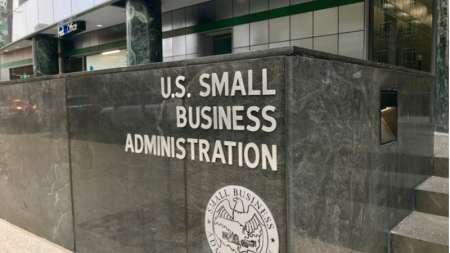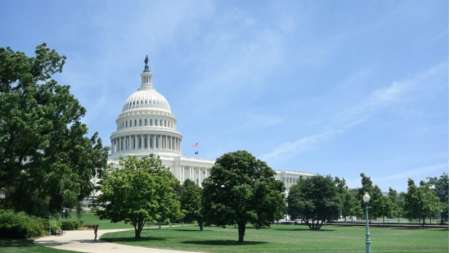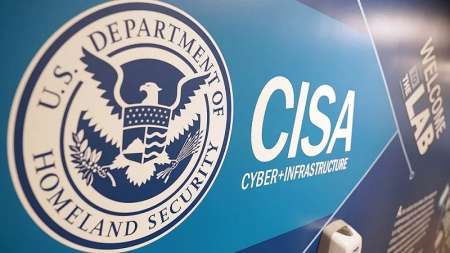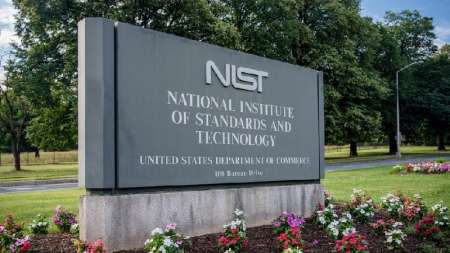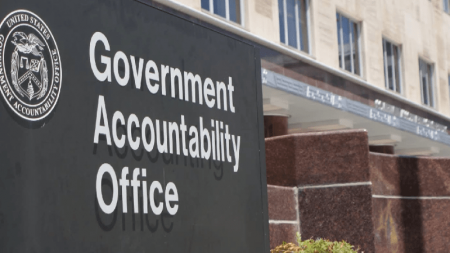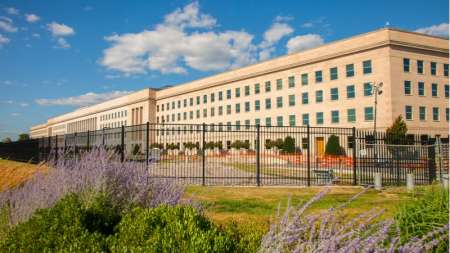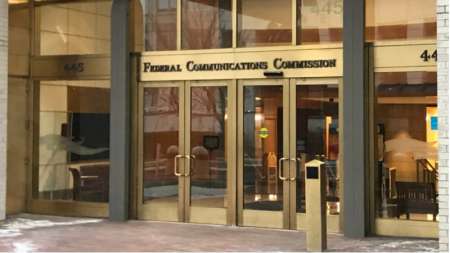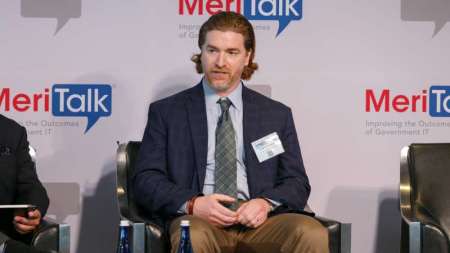As high-profile ransomware and other cyberattacks have spiked over the past year, the Small Business Administration (SBA) is working to prevent and mitigate against them by leveraging capabilities from the Continuous Diagnostic and Mitigation (CDM) program, and working with organizations including the Cybersecurity and Infrastructure Security Agency (CISA) – which runs the CDM program – and the Federal Bureau of Investigation (FBI). […]
The Senate Homeland Security and Governmental Affairs voted today to approve and send to the full Senate for consideration 11 pieces of legislation, including several related to artificial intelligence, the cybersecurity workforce, and the Cybersecurity and Infrastructure Security Agency (CISA). […]
While President Biden’s executive order (EO) on improving the nation’s cybersecurity and the follow-on guidance from the White House Office of Management and Budget (OMB) represent critical steps forward in protecting the U.S. against the increasing volume and dangers of cyber-attacks, Federal agency officials said during an ATARC webinar on November 2 that the directives also present challenges that may require flexibility in their execution. […]
Despite a general cyber workforce shortage, National Cyber Director Chris Inglis today said his office has a “robust pipeline of talent” and expects to have 25 employees staffed in his office by the end of December, once Fiscal Year (FY) 2022 appropriations are released. […]
The Cybersecurity and Infrastructure Security Agency (CISA) today issued a Binding Operational Directive (BOD) to significantly boost the nation’s cyber hygiene by creating a catalog of known exploited vulnerabilities and forcing Federal agencies to remediate them. […]
The Equal Employment Opportunity Commission (EEOC) launches a new initiative to ensure artificial intelligence-enabled technology used in hiring, firing, and promotion decisions abide by Federal civil rights laws. […]
The Intelligence and National Security Alliance – a trade group for the intel and national security communities – is arguing in a new white paper that United States space systems should be classified by the Federal government as critical infrastructure. […]
In the campaign to help combat violence against American Indian and Alaska Native women in the U.S., the Government Accountability Office (GAO) says that better efforts to create and analyze case data in Federal databases are necessary to better understand the full extent of the crisis and work to alleviate it. […]
The Advisory Committee on Data for Evidence Building submitted its first-year report to the Office of Management and Budget (OMB), pursuant to the Evidence-Based Policymaking Act of 2018, detailing its findings and making a list of recommendations including establishing a permanent Federal Chief Statistician role to help improve agency data use. […]
The National Institute of Standards and Technology (NIST) has released draft criteria for consumer software cybersecurity labeling, as mandated by the Biden administration’s Cybersecurity Executive Order. […]
The Federal Deposit Insurance Corporation (FDIC) has a strong information security maturation, with an overall grade of 4 on a 5-point scale, but still has “significant security control weaknesses,” according to a recent audit of its information security practices released by the FDIC Office of the Inspector General (OIG). […]
The Government Accountability Office (GAO) is lending some backing to protest by Microsoft of the National Security Agency’s (NSA) $10 billion cloud award to Amazon Web Services (AWS) earlier this year. […]
A trio of Republican senators is seeking information from the Transportation Security Agency (TSA) about its process for developing the two pipeline security directives it issued this summer, according to an Oct. 28 letter sent to Department of Homeland Security (DHS) Inspector General (IG) Joseph Cuffari. […]
Cloud security provider Zscaler said that its Zscaler Private Access (ZPA) service has received a provisional authorization to operate at Impact Level 5 as published in the Defense Department’s Cloud Computing Security Requirements Guide. […]
John Sherman, who has served as Acting CIO for the Department of Defense (DoD) and is the nominee to move into the position permanently, told members of the Senate Armed Services Committee at a confirmation hearing on October 28 that he wants to put in place a new strategy to develop DoD cyber talent, among other steps if his nomination is confirmed. […]
The Federal Communications Commission (FCC) has opened the filing window for the $1.9 billion Secure and Trusted Communications Networks Reimbursement Program. In September, the FCC announced that the filing window would run from Oct. 29 to Jan. 14, 2022. […]
The Secure Equipment Act has now cleared both the House and Senate, and is expected to land on President Biden’s desk for his signature shortly. […]
The acting manager of the Cybersecurity and Infrastructure Security Agency’s (CISA) Continuous Diagnostics and Mitigation (CDM) program is hailing quick progress that the program and Federal agencies have made in signing new agreements mandated by the Biden administration’s Cybersecurity Executive Order to share object-level network data with the CDM program, rather than the summary-level data that was previously required. […]
On today’s episode of MeriTalking, MeriTalk’s Nicole Burdette sits down with Jay Boisseau, AI & HPC Technology Strategist at Dell Technologies, and Marc Hamilton, Vice President of Solutions Architecture and Engineering at NVIDIA, to explore the steps agencies are taking toward “digital first government” and what this means from a workforce, cybersecurity, and emerging technology perspective. […]
Over the past 20 years, government agencies have worked to shift from paper-based to digital operations. Early efforts, too often, went halfway. Agencies digitized the front end, but back-end operations largely remained the same. And on the front end, a digital customer experience was not as robust as it was in person. For example, early-stage digital government offered citizens access to forms online, which was convenient. But if someone had a question, there was no mechanism for in-person follow-up or an immediate response. […]
As Democrats in the House and Senate reconcile differences on the slimmed-down $1.75 billion budget reconciliation bill that funds “soft” infrastructure priorities, some tech and cyber-related provisions have fallen out of the bill or had their funding levels slashed, while others made new appearances into the latest draft of the bill, which has been cut down from its original $3.5 trillion price tag. […]
Legislative and Federal policy efforts are coming together to focus on protecting the top-most tiers of critical infrastructure in the United States, top officials from the House and the Cybersecurity and Infrastructure Security Agency (CISA) agreed today. […]
Intelligent automation is quickly changing the landscape of healthcare, medical research, and health services by enabling the automatic classification, extraction, and enrichment of information. This is helping agencies provide a better experience for patients, cutting back on costs, and reducing turnaround time, according to Federal health experts at a FedInsider virtual event Oct. 28. […]
The National Security Agency (NSA) and the Cybersecurity and Infrastructure Security Agency (CISA) published cybersecurity guidance to securely build and configure cloud infrastructures in support of 5G. […]
The future of developing the Federal cybersecurity workforce could rely on apprenticeships to fill the talent pipeline and improve retention in cyber roles. […]
In addition to facing cyber threats from nation-states, both government and private organizations have been the victims of an increased volume of ransomware attacks from criminal organizations over the last two years. A Central Intelligence Agency (CIA) official emphasized this week that organizations need to be on the lookout for any suspicious activity on their systems in order to guard against the uptick in ransomware attacks. […]
The threat landscape has shifted drastically amid the COVID-19 pandemic as more and more organizations and governments deal with emerging cyberattacks and ransomware threats. Pure Storage, an IT leader delivering a portfolio of modern data solutions and services, has continued to provide organizations with innovative solutions to mitigate these threats with its portfolio of data protection tools. […]
Chris Inglis, the nation’s first-ever National Cyber Director, is building out his office with an inaugural strategic intent statement, as well as the addition of Federal Chief Information Security Officer (CISO) Chris DeRusha who will have a dual designation as the deputy national cyber director for Federal cybersecurity. […]
The Trusted Internet Connections (TIC) 3.0 program office at the Cybersecurity and Infrastructure Security Agency (CISA) recently released its TIC 3.0 remote user case document, and a TIC 3.0 Cloud Use Case document is also in the works, program lead and CISA Senior Cybersecurity Architect Sean Connelly said today. […]
As Federal agencies approach the six-month mark since President Biden issued his Cybersecurity Executive Order (EO) in May, Federal officials are pointing to the zero trust, supply chain risk management, and data aspects of the EO as the greatest opportunities to make a difference in shoring up security. […]

